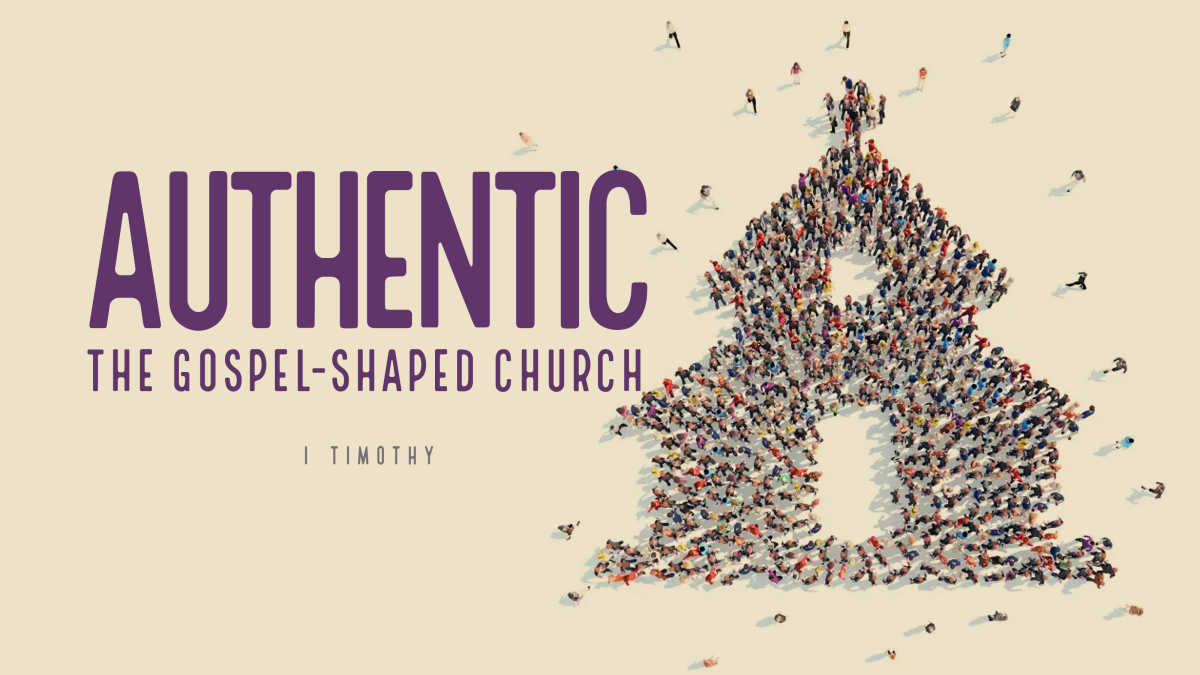Getting Acquainted with Apocalyptic Literature
At some point, you may have opened up the book of Daniel to see what other treasures it holds after being inspired by the lion’s den or the fiery furnace. If you did this, you likely realized something as you turned to chapter seven: this book gets crazy.
Daniel holds confusing and difficult portions of the Bible. It shifts from expected narrative and prophesy to surreal visions of otherworldly beasts, oddly-specific numbers, and terrifying figures. What are these weird passages? And why are they in the Bible?
These portions of Daniel are written in a literary genre called “apocalyptic literature.” While this genre was well known in the ancient world, it’s not really used today. So, when we find it in Revelation and in other books like Daniel, we don’t really know what to do with it. But this also means that apocalyptic literature is not inaccessible to us; we simply need historical and cultural cues as we seek to understand it.
This article is meant to help acquaint us with apocalyptic literature. We will get to know apocalyptic writing by asking what it is, why it’s in the Bible, and how we should go about interpreting it. Hopefully, apocalyptic literature won’t be so strange to us anymore. We may even be able to call it our friend.
What Is Apocalyptic Literature?
When we’re introducing a friend to someone new, we like to help them understand who they’re about to meet. Sometimes we’ll say they look like Kathy but without glasses, or that they are the size of Jim but have the heart of a teddy bear, or are artsy like Jen but more scientific. These comparisons can be helpful to set expectations straight and fast-forward through some of the shock of meeting someone new.
Apocalyptic literature is a friend we’d like you to get acquainted with, but you might be thrown off at first since you haven’t met anyone exactly like it. So, to help us orient ourselves, it helps to compare apocalyptic literature with three similar genres that you probably have met: poetry, myth, and prophecy. Let’s look at those each in turn.
Poetry
While apocalyptic writing isn’t written in verse, it’s like poetry in that it primarily uses metaphors, images, and symbols to communicate its message. Like in a poem, the images that we see in a book like Daniel might represent something else; or else, the symbolic descriptions of beasts or figures in Daniel might not be describing a literal animal or person, but instead telling about the kind of qualities and character that those figures have.
Myth
Apocalyptic literature resembles mythology in that it features significant cultural figures, characters, and values that help its readers understand the present. Myths claim to recount stories from the past, whereas apocalyptic writing tells us about the future. Both are written to a particular people: just like ancient Greek myths were originally written by and for ancient Greek people, so biblical apocalypse is written by and for God’s people. So, we have to pay special attention to the cultural values and experiences of the original audience to understand the apocalyptic portions of a book like Daniel.
Prophecy
Now, in comparing apocalypse to poetry and mythology, we are not saying that the apocalyptic portions of the Bible aren’t true. Books like Daniel and Revelation reveal true things just like the rest of Scripture, even though their method of revealing that truth is different than other books.
Therefore, a final genre to compare biblical apocalyptic literature to is prophecy. Prophecy in the Bible involves God revealing his word to a prophet to proclaim on his behalf. The apocalyptic books of the Bible do this, and they also always contain an element of God revealing something about the end of the present age. Daniel is “prophetic” in that it is true, being written with the full authority and weight of God’s word.
Definition
What, then, is biblical apocalyptic literature? It’s a genre that reveals God’s word through images, symbols, and themes significant to God’s people; it often focuses on the end of the present age, coming conflict, and the ultimate victory of God and his people; it intends to exhort God’s people to remain faithful, and encourage them to have hope in God.
Why Don’t You Just Say What You Mean?
Definitions are helpful. It helps to know what we’re walking into when we open a book like Daniel. I’m sure, however, many of us can relate to the experience of reading a passage from Revelation or Daniel and setting our Bible down utterly baffled. We certainly get the sense that the seven bowls of judgement or the ten-horned beast symbolize something—but what? Why can’t these books just say what they mean? After the question of what, there remains a question of why: Why did God inspire authors to write apocalyptic books instead of something easier to interpret? If God wants us to know him and obey him through his word, why did he give us books as seemingly-convoluted as Daniel and Revelation?
There are two answers to this question for us to consider. The first is to simply recognize that some of the difficulties we face with the Bible’s apocalyptic books stem from the distance between us and the original audience. Like we said, the original readers would’ve been familiar with the genre and therefore were more prepared for its more surreal aspects. Furthermore, the images and symbols were all tailored toward the culture of the original Israelite readers. We now read across a cultural divide.
The second answer to the question of why apocalyptic literature is in the Bible at all is more important, and it has to do with the unique benefits offered by the genre. We have to confront some of our own cultural biases here. Generally, modern Westerners consider simple, straightforward prose to be the best way of communicating truth. That’s why we often gravitate towards Paul’s clear arguments in Romans or Luke’s historical accounts in Luke-Acts.
Apocalyptic writing, however, is capable of doing something that doctrinal arguments and historical accounts aren’t equipped to do. Therefore, we can think of apocalyptic literature in the Bible not as an obstacle to get around, but as a distinct blessing from God to appreciate.
So, what does apocalyptic literature uniquely offer? Let’s consider again the intent of these writings. Daniel and Revelation both intend to do more than simply convey information. They mean to urge God’s people to remain faithful in coming adversity; they mean to comfort God’s people in the middle of crisis; they mean to press God’s people to hope in the salvation he will bring.
In this way, the jarring, dramatic imagery of the genre works to contrast the way things appear with the way things truly are. Metaphors, symbols, and figures are well equipped to accomplish that task (in a way that simple prose might not be). People use figurative language, poetry, and stories to convey the significance and meaning of things. Apocalyptic literature communicates truth from God, but it does more than that: it tells us how to feel about that truth, what the truth about God’s past and future actions means for today.
Consider the Israelites who first read Daniel’s apocalyptic writing. They had seen their kingdom destroyed by Babylon, their God mocked, and their people mistreated and killed. Their whole worldview, their entire sense of identity had been shaken to its core. How encouraging for them to see an image of the Ancient of Days ruling sovereignly on his throne in chapter 7! God may have appeared defeated when his people were exiled, but Daniel 7 pulls back the veil and shows the truth: God reigns. Or else, amidst all their confusion and discouragement of watching the wicked Babylonians seemingly prosper and thrive, how affirming to see them depicted as God sees them: as a violent beast or part of a hideous idol.
Think of that in light of the trials we face today. The world is confusing. It’s difficult to tell who is good and who is bad, who is winning and who is losing; it’s hard to see how who’s on God’s side and who’s against God. Apocalyptic books were written for just these types of crisis times. They depict the heroes and villains of God’s story, and reassure God’s people that God will not be defeated. We are meant to be swept up into the drama of the otherworldly scenes of Daniel or Revelation as they help us faithfully live as God’s people during times of crisis.
Reading and Understanding Apocalyptic Literature
So, we’ve sketched out what apocalyptic literature is, and we’ve explored why it’s in the Bible. We’ll end now by exploring how to actually understand apocalyptic writing in the Bible.
Understanding apocalyptic literature in the Bible requires us to become the right audience. Remember that Daniel, like other books in the Bible, isn’t written to just anyone: it’s written to God’s people. Therefore, the visions and symbols of the book are meant to be meaningful and significant for God’s people based on who they are and what they know. So, insofar as we’re unable to understand its images and figures, we have to enter into its drama, in part by learning and cultivating the imagination commended and assumed by the text.
But in doing so, we must understand that we are the book’s audience: in Christ, we are God’s people for whom Scripture is written. So, we first ask what it meant to its original audience, and from there, we ask what it means for the church. From this, we can list two general rules for interpreting apocalyptic passages in the Bible.
- We don’t view apocalyptic discourses as enigmas to decode, but as dramas to locate ourselves, the world, and God within.
- We don’t import interpretations from our context that could not have applied to the original audience, though we do ask what the text means for us because of our continuity with the original audience as the people of God fulfilled in Christ.
So, as we sit down together to read Daniel, we can frame the process of reading apocalyptic Bible texts as one of knowing, feeling, and then acting. In more biblical terms, a process shaped by truth, faith, and life.
Knowing
Knowing, or truth, involves comprehending what the text says and what it refers to (Daniel 7 says the Ancient of Days reigns, and that refers to God’s reign over the universe). This isn’t always a simple task; it involves becoming familiar with the genre, the culture, values, and context of the original readers, and also perceptiveness about how the meaning for the original audience corresponds to our present context, culture, and values.
Feeling
Feeling, or faith, involves an inward process of believing the text and understanding ourselves to be located in its drama. The concern of God’s people in Daniel is our concern because God has made us part of his people. Therefore, God’s promises and commands through the text are relevant to us. Accordingly, we should feel certain things in response: gladness, comfort, hope, gratitude, awe, etc. These emotions are natural and good responses to God’s gracious rule and care.
Acting
Acting, or life, involves responding properly to the text. Believing in the truth revealed in the text should produce a response of fidelity to God, trust in his promises, observance of his commands, and love for him and his people.
If we walk away from the Bible—even from apocalyptic portions of the Bible—without knowing truth, feeling faith and its fruits, and responding with our actions, then we’ve not yet fully read it in the way God intends.
Conclusion
In some ways, Daniel should be a lot less intimidating now. After all, there are keys to understanding its truth! It is not a complex riddle meant only for theologians.
In another sense, though, if this all sounds difficult and overwhelming, it should. It’s easy to write Daniel off as a book for the academy. It is much harder to say that Daniel has a place in God’s work in your life to interrupt, rule, and reform your personality. But that is exactly the business of God using Scripture to redeem his people, so we must not run from it. There is a baptismal character to interpreting the Bible: we have to die to our old selves and rise again to a new self. That death and rebirth is only possible through the grace of Jesus and the illumination of the Holy Spirit.
Without the gospel, we can learn about ancient literature genres and historical context; we can speculate about the meaning of surreal visions written thousands of years ago—but we can never believe in and live according to the Word of God. Therefore, let us not forget to pray earnestly for understanding and faithfulness as we read Daniel. We are not playing with mere ideas, but wrestling with the gospel revealed to us through apocalyptic literature.





